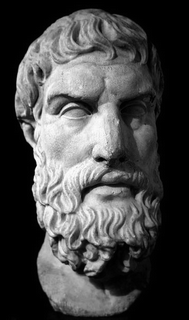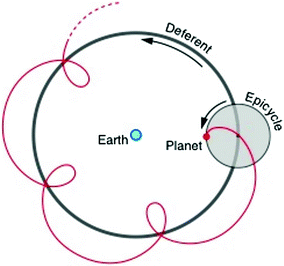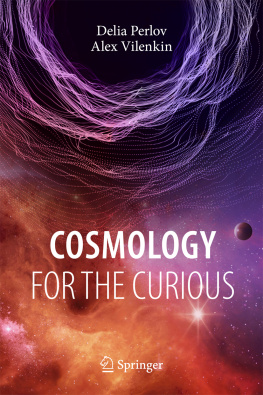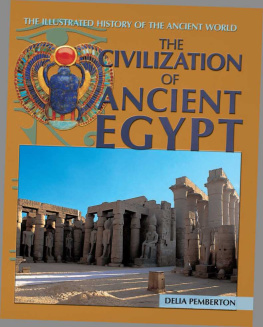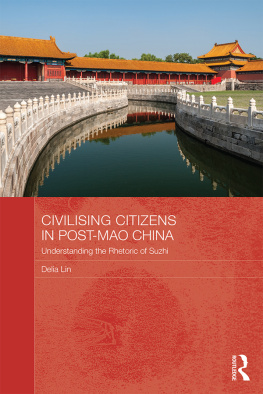1.1 The Big Cosmic Questions
Cosmology is the study of the origin, nature and evolution of our universe. Its practitioners strive to describe cosmic history in quantitative detail, using the language of modern physics and abstract mathematics. Yet, at its core, our cosmological knowledge is the answer to a few fundamental questions. Have you ever drifted off deep into thought, wondering: Is the universe finite or infinite? Has it existed forever? If not, when and how did it come into being? Will it ever end? How do we humans fit into the grand scheme of things? All ancient and modern cultures have developed creation stories where at least some of these questions have been addressed.
In one of the Chinese creation myths, the universe begins as a black egg containing a sleeping giant, named Pan Gu. He slept for 18,000 years and grew while he slept. Then he woke up and cracked the egg open with an ax. The light part of the egg floated up to form the sky, while the heavy part stayed down and formed the Earth . Pan Gu remained in the middle and continued to grow, pushing the sky and the Earth further apart. When Pan Gu died, his breath became the wind, his eyes the Sun and the Moon , his sweat turned into rain, and the fleas in his hair transmuted into humans.
The prospect of being a descendant of fleas may not be fully satisfying, but perhaps an even more objectionable aspect of this story is that it does not address the obvious question: Where did the black egg come from in the first place? Similar types of questions also arise in the context of scientific cosmology. Even if we claim to know what happened at the beginning of the universe, you can always ask: And what happened before that? There is also a limit to how far we can see in space, so how can we know what lies beyond?
For a long time it seemed as though we would never know the answers to the big cosmic questions. Thus, cosmologists focused mostly on the part of the universe that could be directly observed, leaving it to philosophers and theologians to argue about the great mysteries. We shall see, however, that due to remarkable developments in cosmology over the last few decades, we now have answers, that we have reason to believe, to at least some of the big questions.
1.2 Origins of Scientific Cosmology
The idea that the universe can be rationally understood is at the foundation of all scientific knowledge. This concept is now commonplace, but in Ancient Greece more than 20 centuries ago it was a daring hypothesis. The Greek philosopher Thales (6th century BC) suggested that all of Natures variety could be understood from a few basic principles, without the intervention of gods. He believed that the primary element of matter was water. Two centuries later, Democritus advocated that all matter was made up of tiny, eternal, indivisible particles, called atoms , which moved and collided with one another in empty space . He stated: Nothing exists except atoms and empty space. This line of thought was further developed by Epicurus (3rd century BC), who argued that complex order, including living organisms, evolved in a natural way, by random collisions and rearrangements of atoms , without any purpose or intelligent design. Epicurus asserted that atoms occasionally experience small random swerves from their rectilinear motion. He believed that these deviations from strict determinism were necessary to explain the existence of free will. Epicurus taught that the universe is infinite and that our Earth is just one of countless worlds that constantly form and decay in an infinite space (Fig. ).
Fig. 1.1
Epicurus (341270 BC) taught philosophy in the garden of his house in Athens, where he regularly met with a small group of followers over a simple meal. The group included women and one of his slaves. Epicurus was a prolific writer, but almost all of his writings have vanished. Epicurean philosophy flourished in ancient Greece and Rome for several centuries, but was banished in the Christian world, because of its uncompromising materialism. Its most complete exposition came to us in a magnificent poem On the Nature of Things, written in the first century AD by the Roman poet Lucretius . The poem was lost for more than a thousand years and was rediscovered in a German monastery in 1417, just in time to influence the development of ideas during the Renaissance
Another important direction of thought originated with Pythagoras (6th century BC), who believed that mathematical relations were at the heart of all physical phenomena. Pythagoras was the first to call the heavens cosmos , which means order. He suggested that the Earth, the Sun, and other celestial bodies are perfect spheres and move in perfect circles around a central fire, which cannot be seen by human eyes. Think about how different this is from the random aggregates of atoms envisioned by Epicurus!
In the 4th century BC, Plato and then Aristotle proposed more elaborate versions of this picture, placing the Earth at the center of the universe, with the planets , the Sun and the stars attached to translucent spheres rotating about the center. This was a decidedly finite universe, where the stars were placed on the outermost sphere.
The Greeks made very accurate observations of the planets, and already in the 3rd century BC it had become evident that the simple model of concentric spheres could not adequately explain the observed motion of the planets. Further refinements of the model were getting more accurate, at the expense of becoming more complicated. First, the centers of the spheres were displaced by certain amounts from the Earth . Then came the idea of epicycles : each planet moves around a small circle, whose center rotates around a large circle, as shown in Fig.. Epicycles explained why planets seem to move backward and forward on the sky, and why they appear to be brighter during the periods of backward motion.
Fig. 1.2
The planet moves around a small circle (epicycle), whose center moves around a large circle (deferent) centered on Earth. The planets resulting trajectory is shown here in red ; most of the time the planet moves in the forward direction relative to the background stars, but for brief intervals, when the planet is close to the Earth , and hence is at its brightest, its direction of motion is reversed relative to the background stars. Credit Daniel V. Schroeder
In some cases epicycles had to be added on top of other epicycles. All of these ideas were consolidated by Claudius Ptolemy in his book Almagest (The Great System), in the 2nd century AD. Ptolemys mathematical model of the universe endured for fourteen hundred years. It accounted for all known astronomical data and also made accurate predictions.
The dismantling of the Ptolemaic worldview began in the 16th century with the work of Nicolaus Copernicus . He wanted to restore the ideal of perfect circular motion by placing the Sun at the center of the universe, and allowing the Earth to move around it in a circular orbit (this idea actually goes back to Aristarchus in the 3rd century BC). As the Earth circles around the Sun, the planets appear to move backward and forward across the sky, removing the need for epicycles . Copernicus devoted his life to the computation of heliocentric orbits and published his work in the book On the revolutions of celestial spheres , which came out in 1543, shortly before his death.
